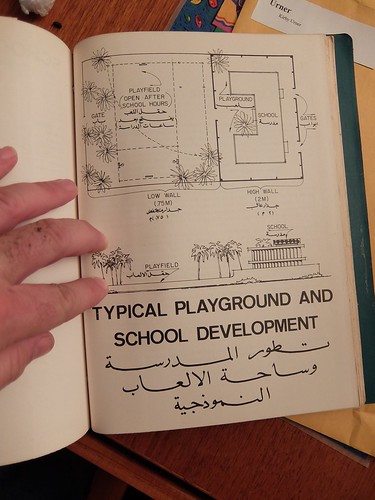I got an ESL teacher on the phone in Florida, working a second job as a licensed insurance agent. We were discussing my plan options. He called just a few seconds after I filled out some POSTing web form, giving my age and weight.
I'm not the big expert either but pulled the plug during verification, when I realized there was no reimbursement to medical providers, simply advocacy up front, negotiated fees for service, which I'd need to pay. "No cap" sounds good, until you realize they mean "on your expenses".
The information was going by too fast. We oldsters actually do need time to catch up, if coming in from the sidelines. One needs orientation, meaning Youtubes. How about have some government officials actually explain what to do and how it works. Don't leave it to some "private sector" even if the latter has a role.
The rules seem ever changing. Trying to make a sale and explain the New World Order in a single sales call is asking a lot of these sales folks. I got to talk to the supervisor later. He understood where I was coming from, but then the higher priced options had no real benefits unless I needed chemo or whatever.
Can we hedge against such an eventuality affordably, per actuarial statistics? Apparently not? Not in the USA that is. I'm not talking about Dubai at the moment (what's a health plan like there I wonder?).
Go look for Obamacare on the Web, and say "welcome to Shark World" under your breath, This is the USA they're selling today as "numero uno" in terms of great places to live. However, if shopping for a new country to join, be forewarned. They're somewhat in disarray in this fish tank. But then when have we ever really figured it out? Look at history.
There's a difference between the process of planning, and selling plans. Plans need to be made before they're salable. I suppose that's obvious. My dad helped plan for the Tripoli of the 1980s, from the standpoint of the 1960s. The plans were followed, or so we heard.
Maybe "wellness plans" are indeed the coming wave, or is that how it's always been or whatever. So I Googled on "wellness plans" -- it was mostly about caring for pets.
The plan provider even looked up my doctor's name. He was very personable. However it takes more than one visit to Best Buy to figure out about computers. Health plans are no less dense with information.
Having companies ravenous to hook a new customer without allowing said customer to engage in a thought process, is not going to work out in the long run, unless the libraries get really good at simply imparting practical information. Has that been happening when my back was turned?
Should libraries turn into call centers, or add call centers to what they do? I'd answer calls about specific topics. I'm not some know-it-all about everything (not a "walking encyclopedia" -- I could never win at Jeopardy). There's no one "go to librarian" who knows it all, plus they don't all speak Vietnamese, if that's called for.
The dream of a World Wide Web (or World Around Web if thinking globally) close matches this idea of a "library", staffed with real people, not just bots reading scripts. The responses come asynchronously mostly, not instantaneously over the phone. At least that's true in my experience.
An older guy like me, in good health (not on meds) in his late 50s, is able to get in on a wellness plan, but major medical maybe not, unless through an employer. DWA (our mid-life partnership) was a self employing "gig economy" type player (lots of clients, per resume, and my wife had as many), so that meant paying for our own coverage, which she ended up needing, for chemotherapy.
There was something called Obamacare in the picture, but this was never really explained. Where's the web page again, to enroll? They say the deadline has already passed. But I was covered before, thanks to a California employer, so how was I supposed to jump ship?
When people clamor for "single payer" I think that means a system they understand. I'm one of those guinea pigs in the system with an out-of-date picture of how "medical coverage" (the game) is currently played. There's probably a whole TV channel devoted to the subject, or a Youtube channel.
No doubt you'll find a gazillion blogs chattering about these topics.
Grain of Sand readers probably aren't coming here to find out about health insurance.
They auto-call you now, when you fill in a web form and click, almost immediately. The calls are scripted and recorded. I bet a lot of people fail in verification, like I did, when I realized I didn't yet know the language and backed out.
They say "hold your questions until the end" as they're hoping to get you to sign on some dotted line. But sometimes the sales process is so lightning fast you have no idea what you're buying, if anything. A description of the benefits will be mailed to you latter.
Yes, all in English on the face of it, but what does that tell you? That we're in some play by Shakespeare? ESL == "English as a Second Language".
Carol (WILPF elder, 87) is up for Fred Meyer's by car. She and I missed the John Taylor talk at Thirsters. She's not as strong sometimes. Yep, we made it.
I'm not the big expert either but pulled the plug during verification, when I realized there was no reimbursement to medical providers, simply advocacy up front, negotiated fees for service, which I'd need to pay. "No cap" sounds good, until you realize they mean "on your expenses".
The information was going by too fast. We oldsters actually do need time to catch up, if coming in from the sidelines. One needs orientation, meaning Youtubes. How about have some government officials actually explain what to do and how it works. Don't leave it to some "private sector" even if the latter has a role.
The rules seem ever changing. Trying to make a sale and explain the New World Order in a single sales call is asking a lot of these sales folks. I got to talk to the supervisor later. He understood where I was coming from, but then the higher priced options had no real benefits unless I needed chemo or whatever.
Can we hedge against such an eventuality affordably, per actuarial statistics? Apparently not? Not in the USA that is. I'm not talking about Dubai at the moment (what's a health plan like there I wonder?).
Go look for Obamacare on the Web, and say "welcome to Shark World" under your breath, This is the USA they're selling today as "numero uno" in terms of great places to live. However, if shopping for a new country to join, be forewarned. They're somewhat in disarray in this fish tank. But then when have we ever really figured it out? Look at history.
There's a difference between the process of planning, and selling plans. Plans need to be made before they're salable. I suppose that's obvious. My dad helped plan for the Tripoli of the 1980s, from the standpoint of the 1960s. The plans were followed, or so we heard.
Maybe "wellness plans" are indeed the coming wave, or is that how it's always been or whatever. So I Googled on "wellness plans" -- it was mostly about caring for pets.
The plan provider even looked up my doctor's name. He was very personable. However it takes more than one visit to Best Buy to figure out about computers. Health plans are no less dense with information.
Having companies ravenous to hook a new customer without allowing said customer to engage in a thought process, is not going to work out in the long run, unless the libraries get really good at simply imparting practical information. Has that been happening when my back was turned?
Should libraries turn into call centers, or add call centers to what they do? I'd answer calls about specific topics. I'm not some know-it-all about everything (not a "walking encyclopedia" -- I could never win at Jeopardy). There's no one "go to librarian" who knows it all, plus they don't all speak Vietnamese, if that's called for.
The dream of a World Wide Web (or World Around Web if thinking globally) close matches this idea of a "library", staffed with real people, not just bots reading scripts. The responses come asynchronously mostly, not instantaneously over the phone. At least that's true in my experience.
An older guy like me, in good health (not on meds) in his late 50s, is able to get in on a wellness plan, but major medical maybe not, unless through an employer. DWA (our mid-life partnership) was a self employing "gig economy" type player (lots of clients, per resume, and my wife had as many), so that meant paying for our own coverage, which she ended up needing, for chemotherapy.
There was something called Obamacare in the picture, but this was never really explained. Where's the web page again, to enroll? They say the deadline has already passed. But I was covered before, thanks to a California employer, so how was I supposed to jump ship?
When people clamor for "single payer" I think that means a system they understand. I'm one of those guinea pigs in the system with an out-of-date picture of how "medical coverage" (the game) is currently played. There's probably a whole TV channel devoted to the subject, or a Youtube channel.
No doubt you'll find a gazillion blogs chattering about these topics.
Grain of Sand readers probably aren't coming here to find out about health insurance.
They auto-call you now, when you fill in a web form and click, almost immediately. The calls are scripted and recorded. I bet a lot of people fail in verification, like I did, when I realized I didn't yet know the language and backed out.
They say "hold your questions until the end" as they're hoping to get you to sign on some dotted line. But sometimes the sales process is so lightning fast you have no idea what you're buying, if anything. A description of the benefits will be mailed to you latter.
Yes, all in English on the face of it, but what does that tell you? That we're in some play by Shakespeare? ESL == "English as a Second Language".
Carol (WILPF elder, 87) is up for Fred Meyer's by car. She and I missed the John Taylor talk at Thirsters. She's not as strong sometimes. Yep, we made it.


